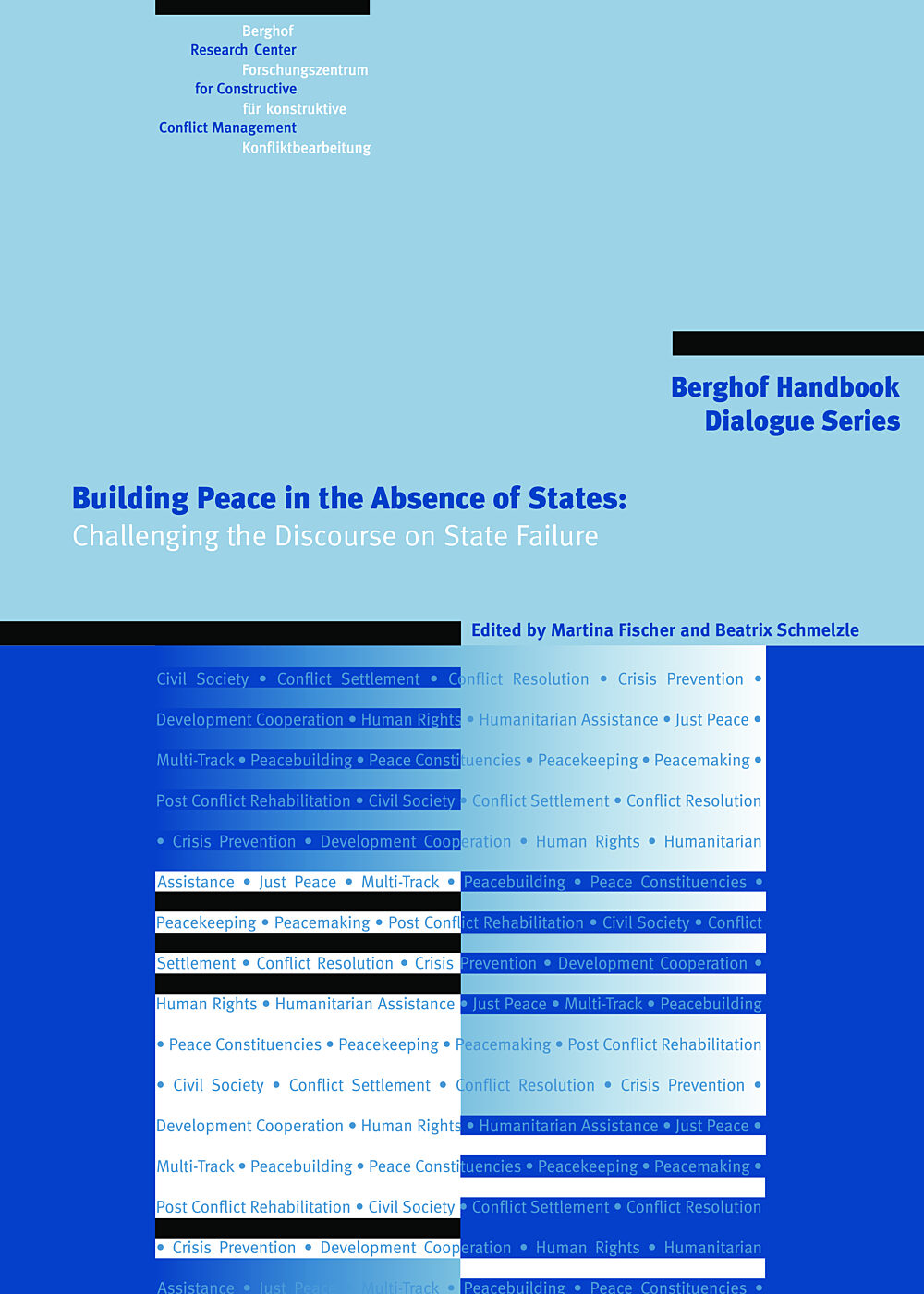Our Library
Explore our publications, from research papers and series to educational materials, covering all aspects of conflict transformation and peace promotion.

Building Peace in the Absence of States: Challenging the Discourse on State FailureHandbook Dialogue Series No. 8 - complete
The exchange between the lead authors and the discussants in this dialogue vividly illustrates the need to shift from a state-centric view, yet without entirely rejecting the notion of state. At the same time it shows the difficulties of integrating concepts of political order that do not correspond with the western-style Weberian/Westphalian state. Instead of advocating ideal-type, off-the-shelf models and blue-prints, the contributors to this dialogue argue that historically well-informed analysis, which leads to a deeper contextualized understanding of the local and regional situation on the ground, has to be the bedrock of any attempts for external assistance aimed at peace and development. They discuss evidence and counter-examples from Somaliland, Afghanistan, Liberia through to the Balkans and East Timor.
- Year2009